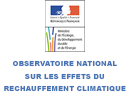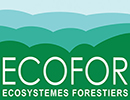Understanding the school “climate”: secondary school children and climate change
Understanding the school “climate”: secondary school children and climate change
This interdisciplinary study analyzes the production, circulation and reception of messages on climate change in secondary schools in France. The objective is to understand how political and educational policy initiatives influence the ways in which schools contribute to creating youngsters’ perceptions and opinions about climate change. In order to study the conditions of production and reception of information about climate change, a survey was conducted in four French secondary schools, in the « Bas Rhin » and « Nord » departments, and local political actors in each department were interviewed. The cross disciplinary analytical and methodological approach uses the tools of sociological inquiry, information science, and political science : questionnaires and interviews were conducted with members of the educational and governmental communities of each school and department, semiotic and discursive analyses of corpuses of documents were carried out, in order to characterize documents used by students and teachers at school or in more informal contexts; the nature and extent of the relations between the political contexts and school directives and programs were also discussed. This interdisciplinary approach, combining sociological, communicational, and political methods, was chosen in response to the hypothesis that three types of variables (social, communicational and political) contribute to the structuring and production of messages about climate change in schools.
This report offers a contextualized overview of activities developed within the four secondary schools to help sensitize children to the risks associated with climate change. A study of the networks of individuals (teachers, staff, members of associations, etc.) created in and around the school environment is presented.
The degree of involvement of these actors in climate change programs is analyzed, as it is related to their motives and objectives, to the school discipline taught, and to the position held in the school under study. A critical description of the nature and content of communicated messages, activities and projects follows.
Individual and collective initiatives which foster an interdisciplinary approach to climate change education are identified, as are the various obstacles to this approach, including organizational obstacles and the longstanding traditions of the French educational system which tend to hinder pedagogical innovation.
Lastly, the reception of these projects and activities by school children in the second year of secondary school is analyzed. The results of this analysis are somewhat, but not always, encouraging. School children
interviewed do not clearly understand the scientific phenomena surrounding climate change, and have difficulty considering this issue within its wider socio-political context. School children’s interest in climate change and environmental science is largely dependent upon a perceived link with their own centers of interest or hobbies. School children express nonetheless the need for more and better adult mediation on the question of climate change, even though they see environmentally conscious behavior as contrary to the modern lifestyle of comfort that society offers them. Certain school projects and activities which had a particular impact on school children are discussed, in order to suggest criteria for evaluating the effectiveness (or non-effectiveness) of climate change projects in school. This study can be considered to be a tool for reflection and for the evaluation of the potential impact of climate change programs and messages produced for youngsters in school today.
Keywords : climate change ; sustainable development ; secondary school children ; educational policy ; governmental environmental policy ; sociology of education ; semiotic analysis ; discursive analysis ;social representations ; reception.
| Coordinators |
Susan Kovacs ( Université de Lille 3) |
| Partnership |
GERIICO
MNHN
APPA
|
| Funding |
ADEME
|
| Budget |
100 000 € TTC
|




